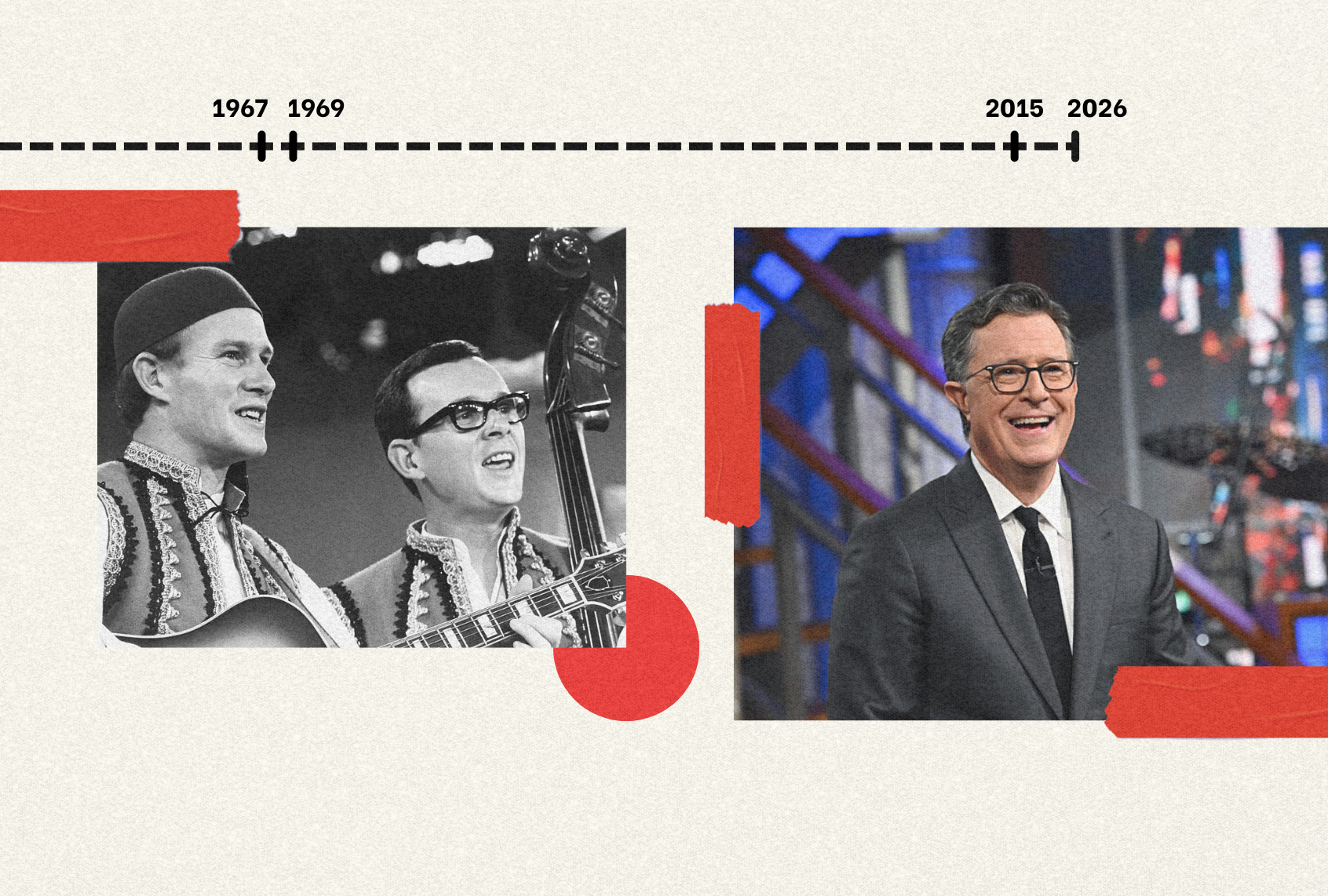T4K3.news
CBS cancels Stephen Colbert's Late Show amid pressure
CBS's decision to end The Late Show raises concerns about the future of political comedy.

CBS's decision to censor comedic voices raises concerns about the future of satire.
The legacy of satirical humor faces scrutiny at CBS
CBS's decision to fire Stephen Colbert signals a potentially troubling trend in late-night television. The network famously cancelled "The Smothers Brothers Comedy Hour" in 1969 under pressure from then-presidents, a move viewed as a grave threat to political comedy. This latest cancellation invites comparisons to that historical moment, highlighting how the media landscape often reacts to power. Colbert, known for his sharp critiques of political figures, has faced challenges similar to those experienced by the Smothers brothers. Both shows tackled controversial topics at times when they were largely absent from mainstream media. The Smothers brothers confronted issues like the Vietnam War, while Colbert has addressed contemporary political strife with a critical lens. Although CBS justified its decision by citing scheduling conflicts with episodes, the underlying issue appears to concern the show’s critique of current power dynamics. History shows that even as satire faces censorship, it adapts and finds new outlets, suggesting a resilience within comedic commentary.
Key Takeaways
"The Smothers Brothers was a groundbreaking social phenomenon that challenged societal norms."
A reminder of the cultural impact of political satire during turmoil, relevant to both past and present.
"I became extra stubborn in the face of censorship."
Tommy Smothers reflects on his defiance against censorship, showing how comedians respond creatively to restrictions.
"We could use the same sentence to describe the cultural relevance of The Late Show with Stephen Colbert."
This underscores the ongoing impact of satirical shows on society, suggesting a parallel in their importance.
"Censorship never signals the death of satire; it transforms."
An essential insight into how political comedy survives and adapts through history.
CBS's cancellation of Stephen Colbert's show evokes the tumult of 1969 when the Smothers brothers faced similar fates. Both iconic programs pushed boundaries, challenging political norms and stirring public discourse. In this digital age of media, however, the question arises whether we will see a decline in late-night satire or a shift to alternative platforms. Engaging comedic voices are essential to a vibrant public sphere, and as history shows, they often persist despite pressures.
Highlights
- Satire thrives where it faces challenges.
- Political comedy is more than entertainment; it's a voice.
- Censorship only strengthens the resolve of satirists.
- The past teaches us that humor will adapt and endure.
Potential chilling effect on political satire
CBS's cancellations may deter comedians from tackling sensitive topics, risking a decline in political discourse through humor.
As media landscapes change, the evolution of satire will remain crucial.
Enjoyed this? Let your friends know!
Related News

CBS cancels Stephen Colbert's Late Show amid controversy

Stephen Colbert responds after Late Show cancellation

CBS cancels Colbert's Late Show

Jon Stewart stands against CBS cancellation of Late Show
CBS cancels Stephen Colbert's Late Show
:max_bytes(150000):strip_icc()/stephen-colbert-david-letterman-late-show-072625-d656ace7949241e38625bb7b9915252b.jpg)
David Letterman lashes out at CBS and Skydance over Late Show cancellation

Colbert's Late Show Canceled Amid Political Pressures

Comedians stand together for Stephen Colbert after show cancellation
